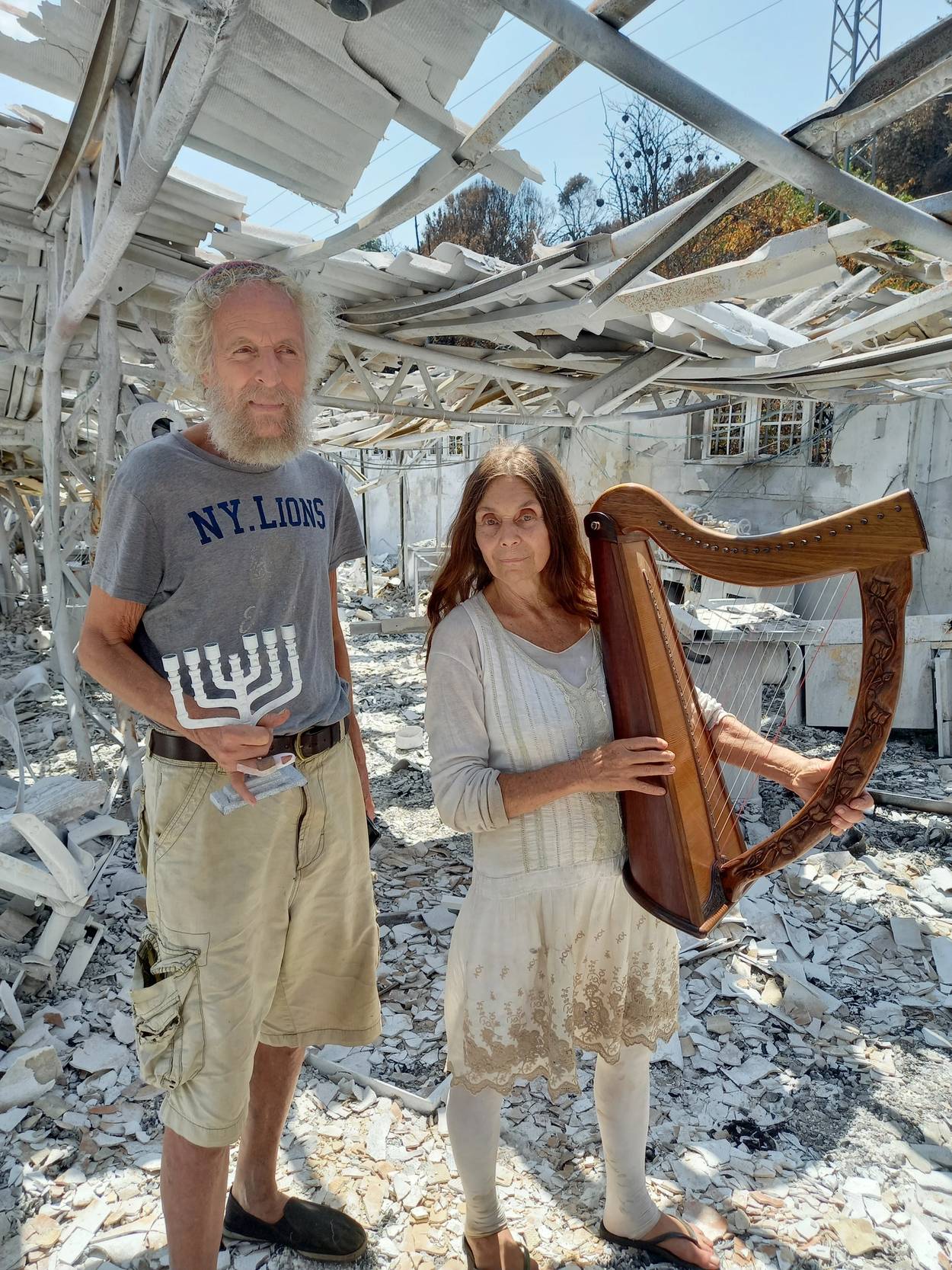Ancient Music, Lost in a Fire
Wildfires in Israel destroy a unique workshop that handcrafted biblical harps




A terrible wave of wildfires in Israel last week destroyed 6,000 acres of forest—and a truly unique business. Nestled deep within the Judean Hills was King David Harps, the world’s only manufacturing plant for authentic biblical harps. Founded in 1984 by American immigrants Shoshanna and Micah Harrari, the tiny workshop was known internationally for its instruments, which are modeled after archaeological findings and specifications found in Talmudic and biblical verses.
When the fire hit, production was in full swing. “We had 30 harps we were completing,” said Micah, who leads a team of master craftsmen to build the harps.
Unlike modern, 47-string concert harps, these instruments have far fewer strings (10 or 22, depending on the model). Custom made from Israeli cypress, olive wood, and rosewood and inlaid with semiprecious and precious stones, the harps range in price from $3,000 to $30,000. They’ve been purchased by museums as well as Jerusalem’s Temple Institute, which includes the harps as part of its permanent exhibit. They’ve also been sold to celebrities. “Glenn Campbell owns two, and Bob Dylan has a door harp,” said Micah.
But this month’s fire turned the workshop to ash. “We don’t even have a screwdriver left,” said Shoshanna.
At first, Micah tried to douse the flames with a fire hose but the fire was too powerful, so he and his wife ran. “We knew we’d die if we didn’t get out quickly,” said Shoshanna. They spent the night at a friend’s house certain that everything they owned was gone.
When Micah returned the following day, he discovered a miracle: The fire had stopped in front of their home. Shoshanna pointed to a slightly melted sign in the window that says “protected by angels.”
“I don’t see any other explanation,” she said.
But the workshop located below their home was destroyed—and it was uninsured. “The insurance company refused us because we were too close to the forest,” said Micah.
Though both are in early 70s, the Harraris want to rebuild. “The harp is a symbol of Israel,” said Shoshanna. “It can’t be allowed to lie in the ashes.”
Without insurance or a cash cushion, the Harraris realize that they will need a miracle for this to happen, but they’ve always lived on miracles.
A musician and a guitar-maker by profession, Micah, a Connecticut native, fell into harp-making when Shoshanna requested a harp for her birthday. “I didn’t want an ordinary harp. I wanted David’s harp—the harp of our people,” Shoshanna recalled. Looking through an archaeology book, she found a line drawing of a harp from the Davidic era, which Micah used as his template.
While that first harp was still under construction, veteran Jerusalem Post reporter Helga Dudman wandered into the Harraris’ home. “She wanted to pick lemons from our tree and we invited her inside for a drink,” Shoshanna recalled. “She noticed the harp—it was just pieces of wood, and she said, ‘You are the first people to make this harp in 2,000 years.’”
Dudman wrote about the Harraris and their harp for the Post in 1984; other journalists picked up on the story. “We were written up in Japan, Norway, Holland, and more places,” said Shoshanna. And soon orders began coming in. Since that time the Harraris have sold thousands of harps.
While it appears that the fire may have brought all of this to a shocking end, the Harraris are hopeful. “The music of our harps can’t be silenced,” said Shoshanna.
What carries them through is the kindness they have experienced since the fire.
“That first night 75 people offered us places to sleep,” Shoshanna recalled. Every day, friends arrive to help the Harraris clean up the mess left by the fire. And they have received emails from people all over the world including four new orders.
“I am excited about the future,” said Shoshanna. “With the help of good-hearted people, the dry bones of our harps will become whole again.”
Carol Ungar’s writing has appeared in Next Avenue, Forbes, NPR, the Jerusalem Post Magazine, and Fox News. She also leads memoir writing workshops on Zoom.